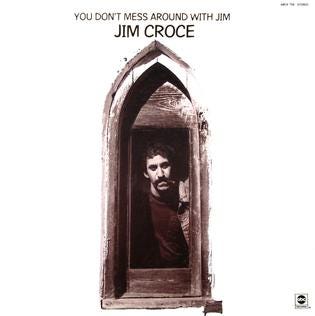The Ad Industry Needs to Demonstrate Its Value
Brands spend nearly half a trillion on ads in the US alone - what are they providing consumers?
We all know the feeling - we browse a product and after a couple of days of internal hemming and hawing, we end up purchasing it. For the next couple of weeks, we seem to be advertised the very same product we just bought across a bunch of sites we browse, causing us to ask what the advertiser of said product is spending their money on and what value they are bringing to the consumer.
While a reasonable frustration for consumers (and one that advertisers have tried - and mostly failed - to solve for years), the reality is that the internet that we have come to know and love (and, at times, loathe) is only made possible through advertising. Some publishers have figured out how to release themselves from the clutches of advertising for existential survival, but an uncomfortable truth is most haven’t. Advertising may seem annoying or intrusive at its worst, but digging deeper it is the financial underpinning of the open internet at its best.
Google Keeps Cookies
While a groundbreaking, paradigm-shifting announcement to those in the advertising industry, most would be forgiven for getting through their Monday last week without focusing on Google’s notice that they would be keeping third party cookies on their Chrome browser.
Cookies have been the linchpin of internet advertising measurement and targeting since their inception in 1994, which means even for relative vets like this newsletter’s author it’s essentially all we’ve known when relying on systems to tell our clients what they are getting back from the millions they are investing in digital advertising (the very millions also supporting publishers.)
But cookies - a small piece of code dropped on a user’s machine when shown an ad online - are the building blocks of a flawed system. And one that the industry has over-relied on in lieu of any solid alternative. They are wipeable by consumers, meaning someone showed an ad today who clears their cookies could be served the same ad tomorrow and be seen as two people in reporting. Or, alternatively, they could be shown an ad on their laptop and convert on their mobile phone and not be counted as an ad-driven lead or conversion at all.
You might be asking yourself, if cookies are so flawed, why would Google keep them in a world moving towards tighter privacy regulations? The uncomfortable truth is that the financial underpinning of the internet requires them. It’s like the Electoral College in the US - you would never implement it if you were starting from scratch today, but it’s so ingrained at this point you simply can’t get away from it.
And the industry has tried. Google announced in January 2020 that it would phase out cookies on its Chrome browser, which is the majority browser globally and is essentially the kingmaker (or deposer) of tracking technology. The industry scrambled to find alternatives and the original phase out date of 2022 was continually pushed back as initiative after initiative failed to meet the simple standard of maintaining tracking that advertisers were used to with cookies.
Then the Brits got involved and said Google was not allowed to phase out cookies without a viable alternative for the publishers who relied on them for their ad inventory. Taking cookies away from them would have wiped out a source of revenue that would have likely ruined many of them. Not everyone has the scale and resources to be a New York Times success story of pivoting towards digital subscriptions.
Which brings us to Monday July 22, 2024 when Google essentially threw up their hands and admitted the industry is so entrenched with third party cookies that there is no realistic path to replace them and maintain the open, advertiser-funded internet as we know it today.
Time to Reiterate the Value Exchange
Cookies are flawed and those advertisers with solid first-party data should continue to move away from them. However, this decision to maintain an ecosystem at least partially reliant on cookies represents an opportunity for the ad industry to do what it has failed to do time and again for the past 30 years: make the case for the value proposition of digital advertising (and all of the accoutrement that comes with it) to the consumer.
While many use the term “free” when it comes to the services enabled by advertising dollars, this is only from an economic sense. There is a well-known saying that when a service is free, chances are you are the product. This is typically true of those places you need to log in to use (social networks, email hosts, online forums.) The site you’re logging into is able to use information they have on you to present you - with a group of others - as particularly marketable to certain brands (and thus can charge those brands more to get in front of you.)
This is why the demise of cookies - which does this data collection and aggregation on a broader scale across the web - is so financially perilous to publishers. These outlets would be set to lose nearly half of their revenue without third party cookies.
The value of advertising goes beyond the brand-consumer relationship. As if subsidizing an open internet and driving content on our screens isn’t enough, studies show that advertising in the US drives up to 1/5 of this country’s GDP. Over half a million jobs are in advertising and related fields (agencies alone make up nearly half of that.)
Advertising is not an altruistic endeavor, and the examples of the enablement of capitalism run amok via advertising are numerous. Advertising can be used as a tool to drive the worst of company drives for top-line growth to the most vulnerable among us, and this needs to continue to be regulated by the government. But these examples are few and far between and to throw the baby out with the bathwater would be highly shortsighted, even if that baby might get exposed to vape and Zyn marketing.
Progress, Not Perfection
In a model spanning over 150 years, advertising by players big and small has driven the creation of content. From your local newspaper to the advent of the radio to the innovation of the television, advertising has been there subsidizing the supply of our news articles, opinion pages, radio programs, and television shows to keep up with seemingly limitless consumer demand.
The same is true for the internet. The fact is, without digital advertising the internet as we know it today simply does not exist. But - ironically - we, as advertisers, are not very good at, well, advertising this to consumers.
We allow wildly off-base opinion pieces to run in the New York Times with no organized rebuttal. We have a tendency to play so much inside baseball that by the time we end up communicating with consumers we’re so bogged down in lingo and acronyms that we’ve lost the narrative before we’ve begun telling the story.
Radio, television, the internet, mobile phones - none of these exist at scale without advertising, and it’s still seen as a nuisance. How could this industry not see that we have a messaging problem? Advertising as a whole - brands, agencies, publishers, tech companies, and even humble Substacks - need to seize the moment and better explain our raison d’etre to avoid further consumer weariness of the industry.
Grab Bag Sections
WTF Rubble Mafia Connection: I don’t have enough space to write about my full feelings on the Paw Patrol universe and Adventure Bay’s infrastructure funding issues in comparison to the police budget (not to mention what has to be a failing public education system.) There’s a spinoff that my son is into called Rubble & Crew. It has none of the charm of the original Paw Patrol, and the writing is somehow worse.
But the one thing that is really bothering me is the obvious fact that Rubble and his crew are mobbed up. There’s not a crack in the sidewalk of this town that they don’t get the contract for. No one even thinks to call another contractor or bid a job out - it automatically goes to Rubble.
The fact that my son is watching this at the same time my wife and I are re-watching The Sopranos might have something to do with this, but either Adventure Bay is communist and only has one state-approved contractor (which, given the funding issues cited earlier, might actually be true) or Rubble and crew are deep in “this thing of ours.”
Album of the Week: Shortly before his life was tragically cut short in a plane crash, Jim Croce released You Don’t Mess Around with Jim, his third studio album and the one that put him on the map musically.
The folk album is excellent, which makes the rejection of it by around 40 different labels baffling. There’s really no skips, with the title track, “Hard Time Losin’ Man,” “Operator,” and “New York’s Not My Home” all standouts (the last one being particularly poignant given his relationship with music labels.) But we all know this newsletter is a sucker for the deep tracks, and “Box No. 10” is TDNBW’s favorite track on the album.
We’ll never know how successful Croce would have been - his most popular song in “Bad, Bad Leroy Brown” was released a few months before his death, but a letter sent to his wife that arrived after the plane crash said he had decided to quit music. Either way, we were robbed of incredible talent that fall night in Louisiana.
Quote of the Week: “Price is what you pay. Value is what you get.” - Warren Buffett
See you next week!








